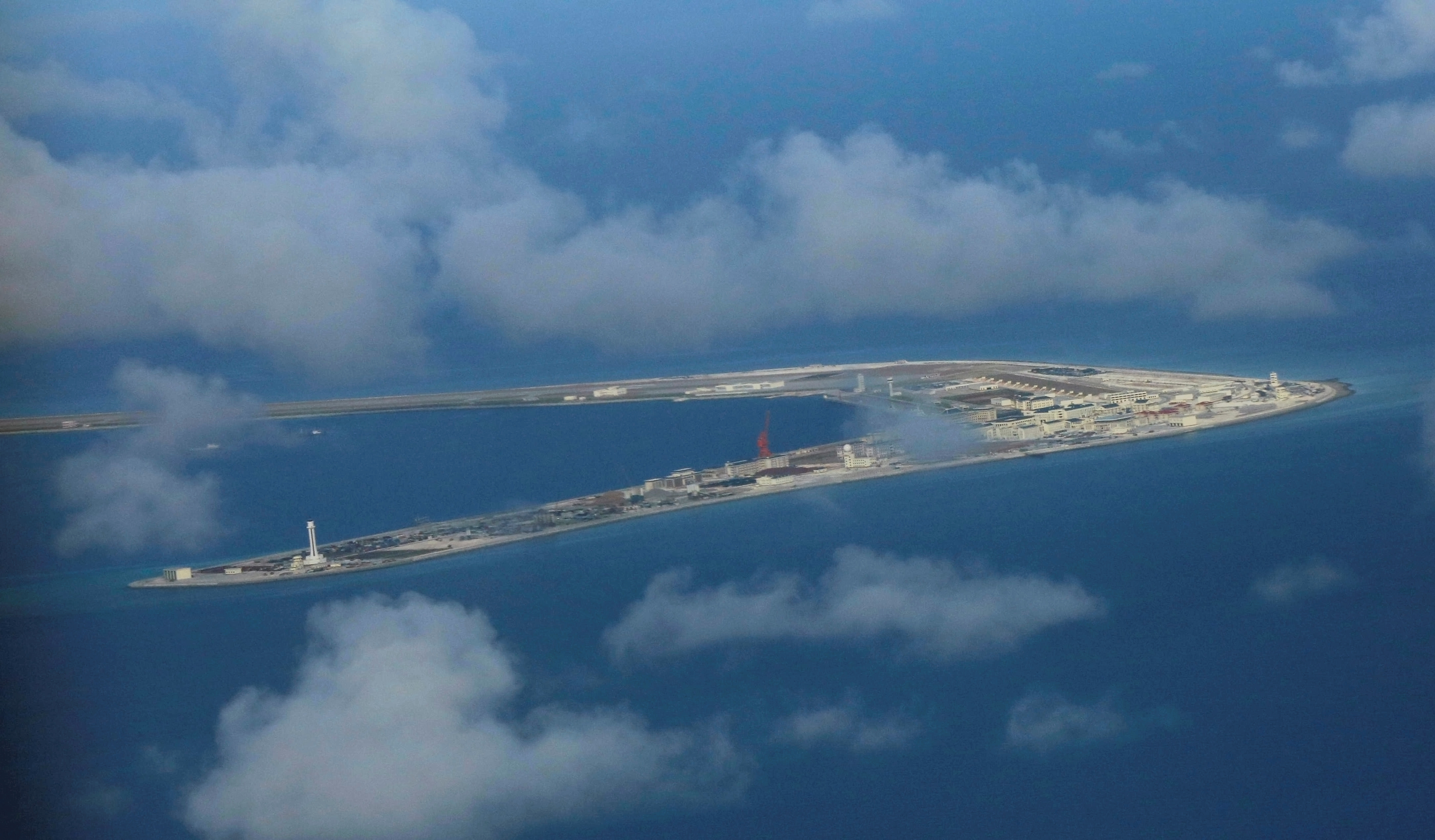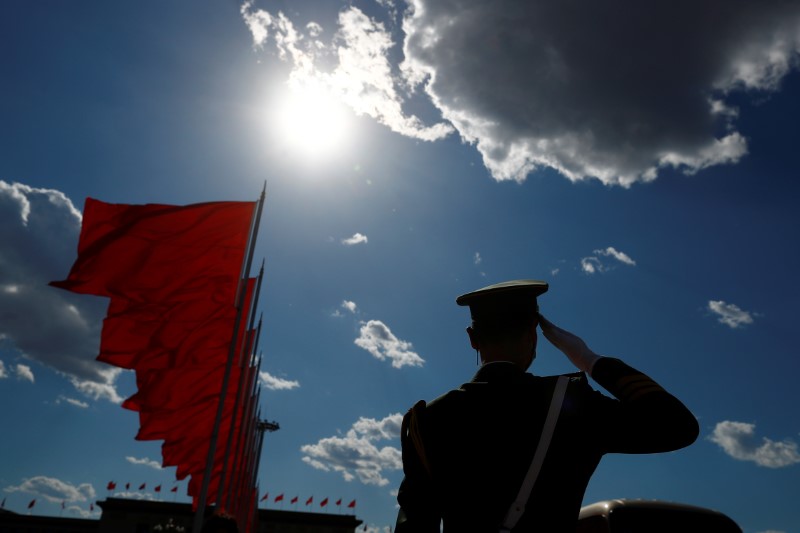
By Sarah Wu and Clare Jim
HONG KONG (Reuters) – Police in Hong Kong fired pepper pellets and made 300 arrests as thousands of people took to the streets on Wednesday to voice anger over national security legislation proposed by China, that has raised international alarm over freedoms in the city.
In the heart of the financial district, riot police fired pepper pellets to disperse a crowd, and elsewhere in the city police rounded up groups of dozens of suspected protesters, making them sit on sidewalks before searching their belongings.
A heavy police presence around the Legislative Council deterred protesters planning to disrupt the debate of a bill that would criminalize disrespect of the Chinese national anthem. The bill is expected to become law next month.
Angry over perceived threats to the semi-autonomous city’s freedoms, people of all ages took to the streets, some dressed in black, some wearing office clothes or school uniforms and some hiding their faces beneath open umbrellas in scenes reminiscent of the unrest that shook Hong Kong last year.
“Although you’re afraid inside your heart, you need to speak out,” said Chang, 29, a clerk and protester dressed in black with a helmet respirator and goggles in her backpack.
Many shops, banks and offices closed early.
The latest protests follow the Chinese government’s proposal for national security legislation aimed at tackling secession, subversion and terrorism in Hong Kong.
The planned laws could see Chinese intelligence agencies set up bases in Hong Kong.
The proposal, unveiled in Beijing last week, triggered the first big street unrest in Hong Kong in months on Sunday, with police firing tear gas and water cannon to disperse protesters.
The United States, Britain, the European Union and others have expressed concern about the legislation, widely seen as a possible turning point for China’s freest city and one of the world’s main financial hubs.
But Chinese authorities and the Beijing-backed government in Hong Kong say there is no threat to the city’s high degree of autonomy and the new security law would be tightly focused.
“It’s for the long-term stability of Hong Kong and China, it won’t affect the freedom of assembly and speech and it won’t affect the city’s status as a financial center,” Hong Kong Chief Secretary Matthew Cheung told reporters.
U.S. President Donald Trump, already at odds with Beijing over trade and the novel coronavirus pandemic, said on Tuesday the United States would this week announce a strong response to the planned legislation.
China responded by saying it would take necessary countermeasures to any foreign interference.
Taiwan President Tsai Ing-wen pledged humanitarian relief for any Hong Kong people fleeing to the self-ruled island.
Asian shares slipped over the rising tension between the United States and China. Hong Kong’s bourse < led declines with a 0.46% drop.
ARRESTS
Protesters in a downtown shopping mall chanted “Liberate Hong Kong! Revolution of our times” and “Hong Kong independence, the only way out”.
One protester was seen with a placard reading “one country, two systems is a lie”, referring to a political system put in place at Britain’s 1997 handover of the city to China, which is meant to guarantee Hong Kong’s freedoms until at least 2047.
“I’m scared … if you don’t come out today, you’ll never be able to come out. This is legislation that directly affects us,” said Ryan Tsang, a hotel manager.
As the protests in the financial district died down, hundreds of people gathered in the working-class Mong Kok district on the Kowloon peninsula, where protests flared repeatedly last year. Marchers there briefly blocked roads before being chased away by police.
About 300 people were arrested, most for illegal assembly, in three districts, police said.
In an interview with Chinese state broadcaster CCTV, Hong Kong Security Secretary John Lee said police had adopted new tactics to control situations as soon as “something happens”.
(Reporting by Sarah Wu, Scott Murdoch, Jessie Pang, Clare Jim, Pak Yiu, Joyce Zhou, Twinnie Siu, Donny Kwok; Writing by Anne Marie Roantree, Michael Perry and Robert Birsel, Marius Zaharia; Editing by Lincoln Feast, Stephen Coates & Simon Cameron-Moore)












